Manufacturing Technology
Enabling Technologies to Connect the Smart Manufacturing Enterprise
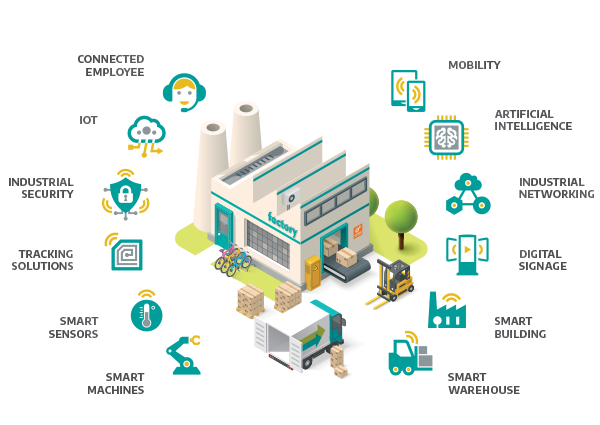
In addition to our core information technology offerings, Connection is invested in bringing further value through our Manufacturing Technology Practice. Our goal is to lead the market with vertical thought leadership, provide a continuously evolving portfolio aimed at manufacturing industries, and partner closely with organizations to provide advice and relevant solutions to support your business objectives in information technology, operational technology, and other critical functions.
We listen closely to the needs of all our manufacturing clients and bring value-added solutions to reduce operating costs, increase quality, improve productivity, as well as other functional initiatives, such as maintenance management or workplace safety, health, and environment.
Each client is unique. Connection understands the evolving business climate and technology landscape specific to your industry, and we strive to understand your business goals, assist you in the pursuit of operational excellence, and aid in the offsetting industry-specific headwinds.
5 Technologies Driving the Future of Manufacturing

Failing to adopt the right technologies to keep up can come at a steep cost. Poor maintenance strategies can reduce a facility’s productive capacity by 5% to 20%, and unplanned downtime is costing industrial manufacturers an estimated $50 billion annually. According to Deloitte, on average, predictive maintenance lowers overall maintenance costs by 5% to 10%. Meanwhile, AI is emerging as the most impactful force in smart manufacturing. The potential for AI in manufacturing is immense, and this is reflected in the industry’s growing investment in the technology. By 2030, 96% of manufacturing companies are expected to increase their AI investments, driven by the promise of improved decision-making and significant cost savings across the enterprise.
Staying ahead of these advancements is no longer optional—it’s essential for maintaining profitability, efficiency, and competitiveness. Here are five key technologies shaping the future of manufacturing and transforming how manufacturers design, build, and deliver.
1. IIoT-enabled Smart Manufacturing
IIoT has been a fixture in manufacturing for years, with connected sensors and data analytics driving efficiencies in production, asset tracking, and predictive maintenance. While the core technology isn't new, its capabilities continue to evolve. In 2025, advancements in AI-driven automation, edge computing, and 5G connectivity are pushing IIoT to new levels of responsiveness and intelligence.- AI-powered predictive maintenance: Traditional predictive maintenance relies on historical data, but AI-enhanced models can now anticipate failures with even greater accuracy by factoring in real-time environmental conditions, usage patterns, and external variables like supply chain disruptions.
- Edge computing for faster insights: Instead of relying solely on cloud-based processing, manufacturers are increasingly using edge computing to analyze data closer to the source. This reduces latency, improves security, and allows for real-time adjustments in high-precision industries.
- Enhanced interoperability: Legacy systems have often struggled with IIoT integration, but new standards and open architectures are making it easier to connect disparate machines and platforms, unlocking more comprehensive analytics.
- Sustainability optimization: IIoT is playing a bigger role in energy efficiency and sustainability. Smart sensors now optimize resource consumption at a more granular level, helping manufacturers reduce waste, lower emissions, and meet stricter environmental regulations.
2. AI-powered Automation and Machine Learning
Artificial intelligence (AI) and machine learning are transforming manufacturing by automating complex tasks, optimizing production processes, and improving decision-making. A recent survey by Deloitte found that AI and machine learning have the largest impact on business outcomes compared to other smart manufacturing technologies. However, only 51.6% of manufacturers have a corporate AI strategy, highlighting a gap in adoption that presents both challenges and opportunities.AI-driven predictive maintenance, defect detection, and supply chain optimization enable manufacturers to reduce downtime, minimize waste, and increase efficiency. Machine learning algorithms analyze vast amounts of data in real-time, allowing for smarter production planning and adaptive quality control. As AI adoption grows, manufacturers that implement strategic AI initiatives will gain a significant competitive advantage in efficiency and innovation.
3. Advanced Robotics and Cobots
The rise of advanced robotics and collaborative robots (cobots) is reshaping factory floors by enhancing productivity, precision, and workplace safety. Cobots, designed to work alongside human operators, are increasingly used for assembly, material handling, and quality inspection, reducing labor-intensive tasks while improving efficiency.With advancements in AI and sensor technology, cobots are becoming more adaptable and intelligent, allowing manufacturers to automate repetitive processes without sacrificing flexibility. The integration of robotics is no longer limited to large-scale factories—small and mid-sized manufacturers are also leveraging automation to stay competitive. As robotics adoption continues to grow, manufacturers that invest in smart automation will see gains in output quality, speed, and operational cost savings.
4. Predictive Analytics and Big Data
Manufacturers are increasingly leveraging predictive analytics and big data to make data-driven decisions that enhance efficiency, reduce costs, and improve product quality. By analyzing real-time data from production lines, supply chains, and equipment sensors, companies can anticipate machine failures, detect defects early, and optimize resource allocation.Modern data stacks are essential for faster data processing and scalability in manufacturing. This shift enables manufacturers to forecast demand, minimize waste, and refine production schedules with greater accuracy. Cloud technology is increasingly viewed as a top driver of ROI for manufacturers—primarily because it manages and scales operations more effectively, and is projected to reach $198.47 billion by 2030 in manufacturing market. As more companies adopt cloud-based analytics and AI-driven insights, data will continue to play a crucial role in optimizing manufacturing operations and driving competitive advantages.
5. Additive Manufacturing and 3D Printing
Additive manufacturing (AM) and 3D printing have evolved beyond prototyping into full-scale production, with industries like aerospace, healthcare, and automotive leading adoption. The global AM market is growing rapidly, with the metal AM sector alone projected to reach $11.49 billion by 2029. In aerospace, 3D printing enables lightweight, high-strength components that improve fuel efficiency, while healthcare applications include customized implants and surgical models that enhance patient outcomes.3D printing also supports sustainability by reducing material waste by up to 90%, though challenges remain with recycling 3D-printed materials. Advancements like laser powder bed fusion (LPBF) and AI-driven automation are making 3D printing faster, more precise, and scalable for high-volume manufacturing. As these innovations progress, additive manufacturing is set to reshape production, reduce supply chain risks, and invite new design possibilities previously unattainable with traditional methods.
The Next Era of Manufacturing
As technologies continue to evolve, manufacturers that invest in smart, scalable, and sustainable solutions will transform how products are designed, built, and delivered. Those who embrace innovation today will be best positioned to increase productivity, reduce costs, and build resilient operations for the factories of tomorrow.Connected Smart Technologies
The Journey to Industry 4.0
Global manufacturing is at a pivotal point in history. Emerging technologies—like the Industrial Internet of Things (IIoT) and big data—are rapidly transforming the way manufacturers conduct their operations. Companies adopting these new technologies are seeing substantial business benefits, including reduced costs, better products, and increased throughput. However, many IT professionals have not gained the training or experience to select and deliver effective solutions in challenging manufacturing environments. Read this white paper to learn how to orient to Industry 4.0, secure your industrial space, address legacy systems the right way, and more.
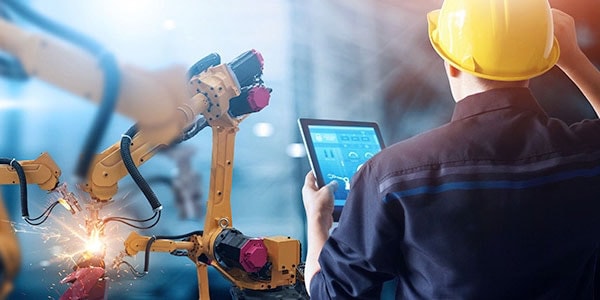
Cisco Industrial Asset Vision
Employees are deploying new IoT sensors to collect data, drive automation, and improve business processes. This can happen in the factory, warehouse, office spaces, or outdoor yards. One of the largest obstacles to scaling such use cases is picking a solution that can address security risks and a diversity of use cases—and makes it easier to deploy to any facility across the organization. Cisco’s Industrial Asset Vision (IAV) makes it easy to deploy a wide range of sensor use cases across the IT infrastructure that cybersecurity teams can trust.
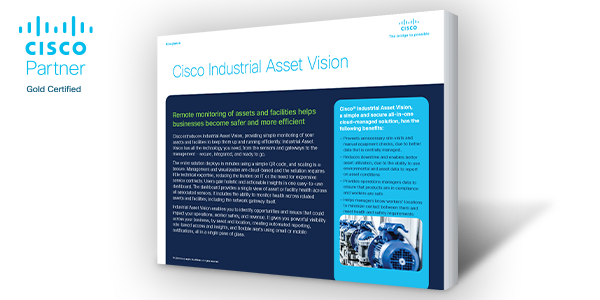
Watch a Replay of Our Live Virtual Event
Aruba and Zebra Building High-fidelity IoT Systems Reduce Costs and Boost Customer Experience
Today’s factories and warehouses depend on a robust networking infrastructure and the ability to manage the smart devices employees rely upon. This complex network of access points, endpoints, and software applications makes it challenging to monitor and tune the environment to optimize operations. Through a partnership between Aruba and Zebra, new integrated toolsets are available to quickly troubleshoot issues with connectivity, signal strength, applications, and overall performance. Learn more about how Aruba and Zebra deliver an improved experience and increase performance for manufacturers.Industrial Infrastructure
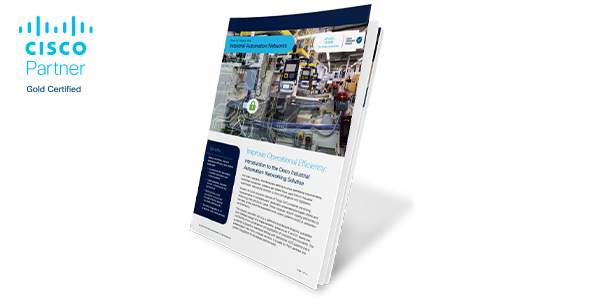
Cisco Industrial Automation Network
Brief
Cisco helps manufacturers solve connectivity, security, and uptime pain points through best-in-class industrial networking solutions. Cisco provides a wide portfolio of industrial switches, routers, firewalls, and access points designed to work seamlessly with industrial control systems in the factory—all while integrating security alerts and logging with corporate monitoring. Cisco’s industrial networking solutions allow for industrial networks that satisfy operational and information technology teams, while creating a fully converged network to support future industrial automation and Industry 4.0 use cases. Learn how Cisco improves both corporate and industrial networking while mitigating OT cybersecurity risks.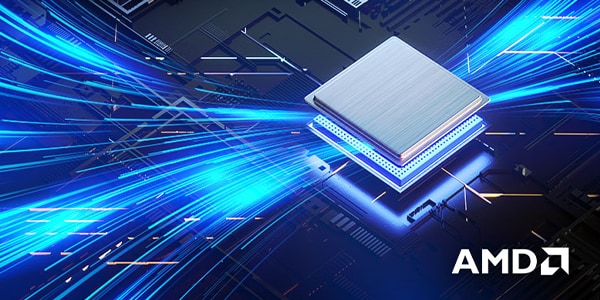
Don’t Just Upgrade Your Data Center—Transform Manufacturing Operations with AMD EPYC
Blog
Operational excellence is everything in manufacturing, whether we’re talking about speeding research and development or producing next-generation products faster, cheaper, and at better quality. In addition to short product lifecycles and increased productivity, many manufacturers are also looking to reduce their energy footprint, become more sustainable, reduce high-priced software licensing costs, and rationalize data center infrastructure. Learn more about how AMD’s next-generation compute platform helps deliver productivity, sustainability, and rationalization to improve the bottom line.Telit IoT Factory Solution
62% of decision makers are forging ahead with smart manufacturing investments.2 Of those manufacturing organizations that are successful, the rewards are significant. They can include 5–20% higher revenue impacts associated with digitally integrated factories—while 86% achieve increases in product yield and 79% experience increases in operational efficiency measures.3
Manufacturers need to collect, integrate, and automate with the intent to optimize the whole value chain and organization. This includes a “no device left behind” strategy that connects and integrates real-time data from legacy and modern production equipment. It means taking a prescriptive action at the edge by integrating data in real-time with business systems and cloud solutions, automating tasks to streamline operations, improving signaling and awareness, and leveraging a platform that allows your organization to continuously evolve. Lastly, depending on the type of manufacturer you may be, this may also include creating smart products or hardware-as-a-service initiatives to open your company up to new levels of customer service, support, or revenue models.
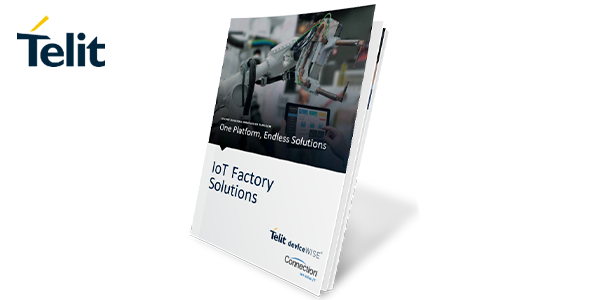
Meraki Manufacturing Technology Solutions
Meraki makes sense of OT and IT technology in manufacturing. From tags and beacons to factory process optimization and Industry 4.0 adaptation—and beyond—Meraki offers the supportive architecture you need to realize new initiatives and create the factory of the future.
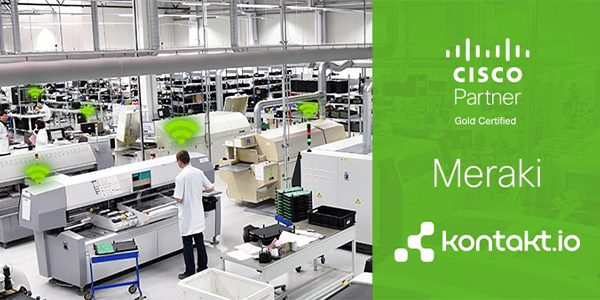
Put Workloads at the Edge
Expedient Edge is an end-to-end compute platform built to run your workloads at edge locations on redundant hardware with remote management and support provided by Expedient. From hardware deployment and maintenance to virtualization support, networking, and storage, Expedient Edge delivers a fully managed platform where you need it.

OnLogic’s NUC Computers
Industrial NUC systems from OnLogic feature their Hardshell™ fanless technology, enabling powerful, small form factor computing even in the most challenging environments. Ideal for space-constrained embedded or IoT applications, OnLogic delivers reliability, durability, and flexibility in a small package. Check out the OnLogic ML100, the next generation of small form factor industrial computing, packing Intel processing into their toughest-ever NUC enclosure.

Meraki MT Button and Power Sensors
Smart sensors are used to capture data about environments, employees, and processes to create a more integrated and insightful business. Meraki released the new MT30—a smart automation button that is configurable and triggers specific actions—from calling for material, engineering support, or a potential safety incident. The MT40, a smart power controller, allows OT and IT to monitor equipment on the factory floor, laboratories, IT closets and data centers, or as part of sustainability and utilization initiatives. Learn more about how these Meraki MT sensors can be deployed atop of your existing network and camera infrastructure quickly, securely, and at scale across your organization.

Industrial Security

HPE Aruba ClearPass
Solution
In 2021, 61% of manufacturing attacks were on operational technology environments, heralding the need to properly protect all manufacturing infrastructure.1 These risks are influenced by old legacy equipment, third-party hardware access and support, and next-generation IoT and mobile devices. For these reasons, it’s more important than ever to gain visibility into who and what is connecting to a manufacturer’s network and how to control what can and cannot connect. Learn more about how Aruba ClearPass delivers protection and efficiency in managing the technology that connects to your network.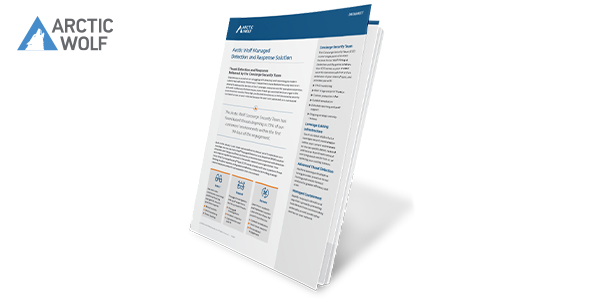
Security Managed Services: Arctic Wolf Managed Detection and Response
Datasheet
In 2021, manufacturing became the number one most attacked industry in the U.S. and world, meaning manufacturing is at a higher risk of cybersecurity threats than ever before.1 Whether your organization is looking to comply with ISO27001, NIST 800-171, or CMMC—or perhaps just looking to enhance your overall corporate security posture—consider how managed cybersecurity services can improve security and address detection and response. Sleep better at night knowing you have experts and state-of-the-art tools to help your teams protect your business. Learn how Arctic Wolf’s managed detection and response services can help.Abacode Cybersecurity and Compliance
Abacode unifies cybersecurity and compliance from their 24x7 Compliance and Security Operations Center—providing threat and compliance management in near real-time. The combination of software-driven security and compliance solutions and deep expertise enables Abacode’s Virtual Compliance SOC to extend industry-leading MDR capability, including full compliance reporting, detection, and response. Abacode eliminates uncertainty and complexity, enabling a dramatic improvement in threat detection and protection, and a new-found visibility into regulatory compliance.

Cisco Cyber Vision
With increased attacks on manufacturing operational technology, it’s time manufacturers invest in OT asset visibility, active risk assessments, and environmental change management to improve reliability, strengthen cybersecurity, and mitigate unique challenges with solutions designed specifically for production.Manufacturing OT Cybersecurity Assessment
With manufacturing becoming the #1 most attacked industry, it’s vital that manufacturers have complete asset visibility, real-time operational insight, and the ability to prioritize actions that will significantly mitigate risks and improve overall security posture. Our Manufacturing OT Cybersecurity Assessment lets our experts examine your operational environments to discern a complete asset inventory, vulnerabilities, and associated risk factors, to bring transparency and visibility to your greatest threat vectors.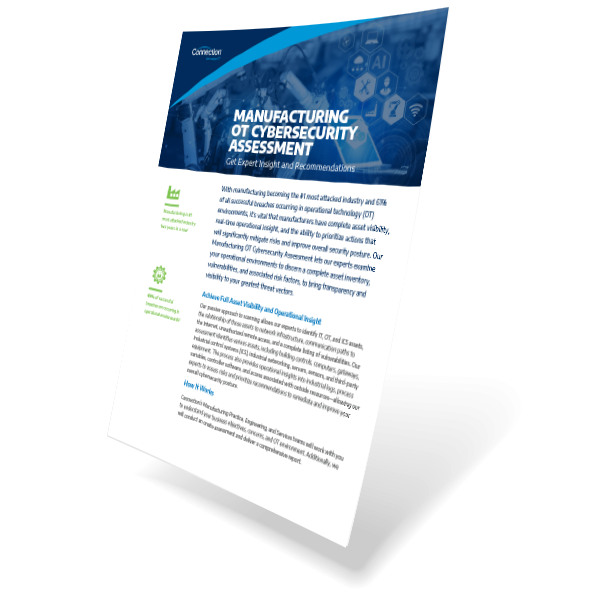
Protecting OT Systems
Connection partnered with Foundry to survey 100 senior U.S. IT decision makers to learn how they are protecting their operational technology (OT) systems. Read the report to learn more about the risk mitigation efforts.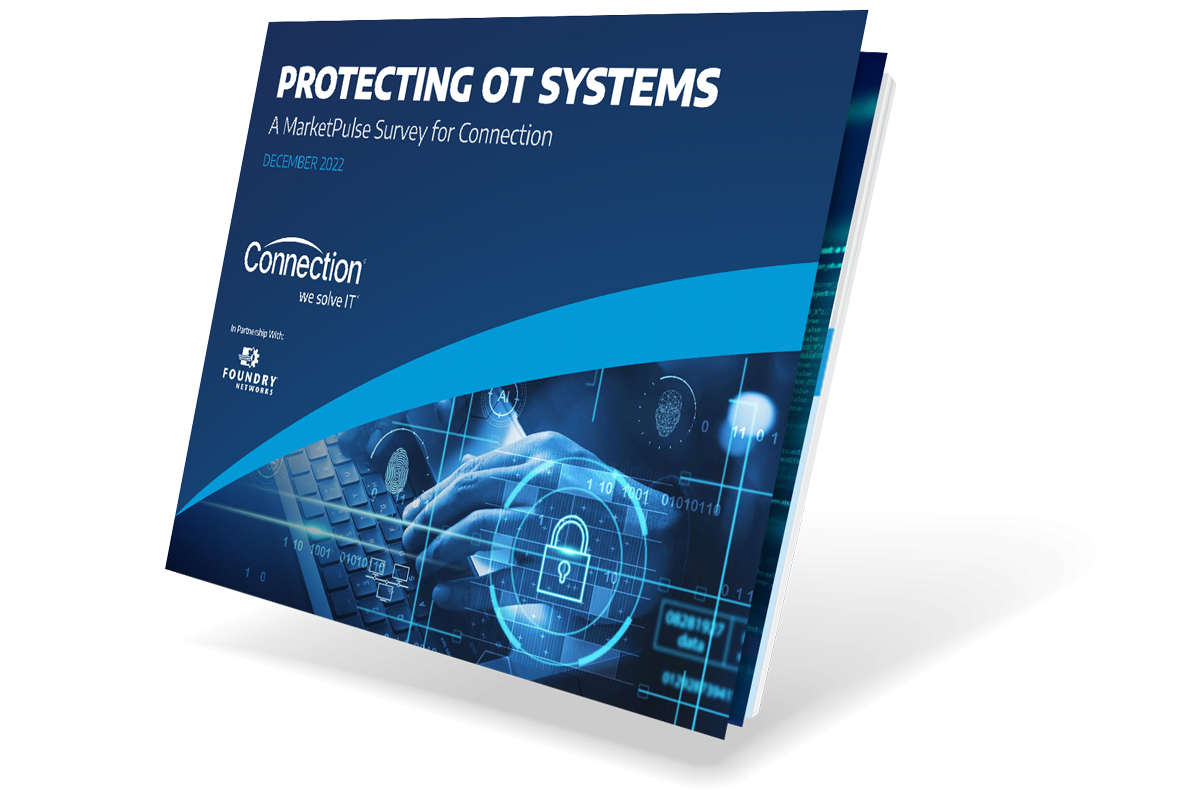
Industrial Workforce
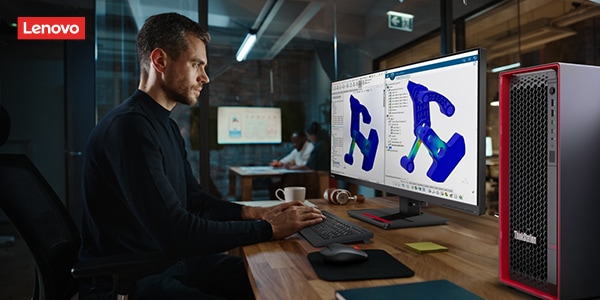
Lenovo High-performance Workstations
Engineering talent is costly. When it comes to keeping designers and engineers productive, leverage Lenovo’s PX series of high-performance workstations to maximize the latest applications to design, engineer, and simulate, so your organization’s engineers can bring the best products to market faster.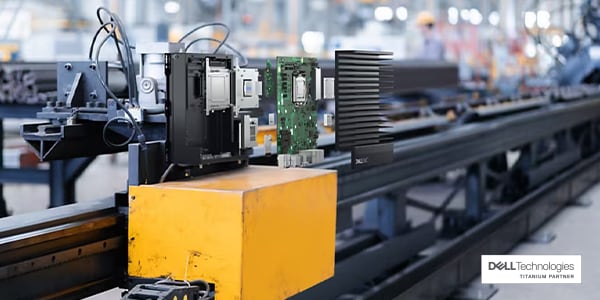
Dell Edge Solutions
Smart manufacturing requires the ability to acquire, automate, and accelerate decision making at the edge. Dell’s EMC Edge Gateway series helps you turn data into actionable insights with secure connectivity and uninterrupted performance, so you can unlock the full power of edge analytics.
Microsoft Surface Laptops and Boards
In today’s factories, the workforce utilizes digital work instruction, traceability, and a wide range of applications to help keep the factory operational. Hand me downs and outdated devices no longer cut it. Leverage the Microsoft Surface portfolio to keep pace with modern workforces. Check out the complete line of Surface mobile devices, Surface Studio, and interactive Surface Hubs to keep your employees productive in the factory.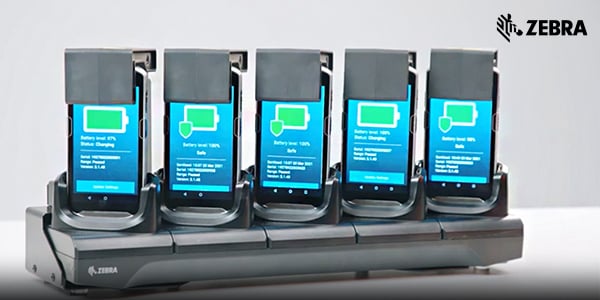
Zebra Intelligent Cabinets
With Zebra’s Intelligent Cabinet Portfolio, your factory or warehouse can now physically secure, check-in and check-out for digital tracking and accountability, and charge a diverse range of Zebra products in their new innovative cabinets, racks, and cradles with ease. Learn more about this innovative portfolio to keep your fleet of Zebra products ready for use.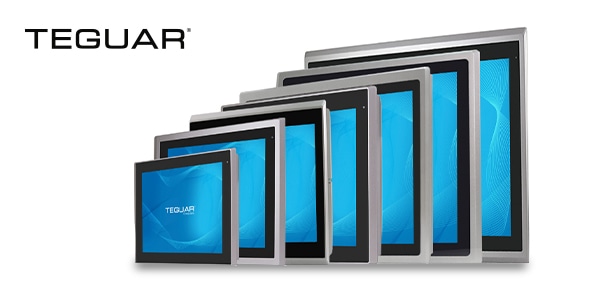
Teguar Panel Mount PCs
Some industries and environments demand more of computers and displays—from extreme temperatures, dust and particulates, liquids, chemicals, and regulatory compliance requirements. These devices can even be powered safely using DC 9-36V power inputs. Learn more about how Teguar delivers industrial panel-mounted computers designed to withstand unique manufacturing requirements.Cloud Technology
Connection Cloud Team
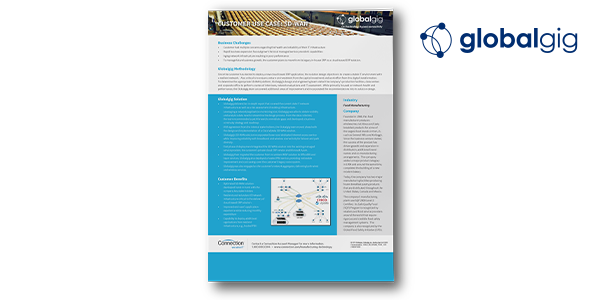
GlobalGig Case Study
GlobalGig helps clients assess, design, and execute on the complex infrastructure necessary for today’s rapidly transforming manufacturing organizations. When shifting from legacy to modern cloud-based ERP solutions, GlobalGig can deliver secure SD-WAN solutions alongside key stakeholders, implement resilient and redundant networks, improve end-user application experience, and help ensure your organization’s new critical application rollout is a success.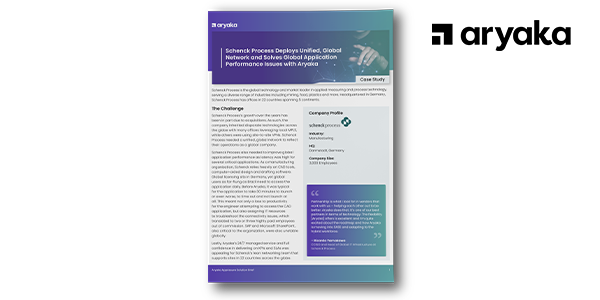
Aryaka Case Study
Aryaka helps global organizations dealing with mergers and acquisitions, global facilities, and disparate technologies deliver true global connectivity. Reduce disconnects of critical applications used by engineers and high-value employees, stabilize network performance to ensure stable connectivity to critical business applications, and provide 24/7 managed services and the insights necessary for global IT infrastructure leaders to deliver on business productivity goals.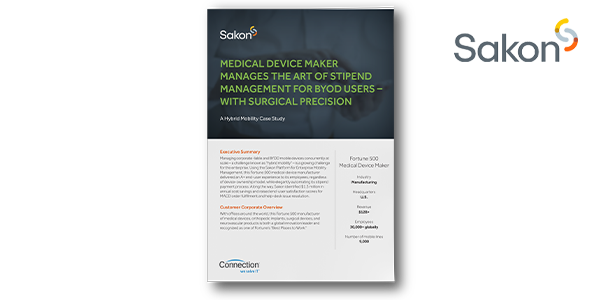
Sakon Case Study
Sakon solutions help manufacturers manage their goals around mobility management—from corporate-owned assets to corporate-liable assets (such as employee-owned devices). Their solution simplifies mobile management, provides bring your own device (BYOD) stipend management, integrates expense and sourcing management, and delivers the insights business leaders need to optimize their mixed mobile fleet of devices while controlling costs.Moving to the Cloud?
With an experienced cloud services partner on your side, you'll maximize the benefits of cloud technology and mitigate the risks.
Data and AI
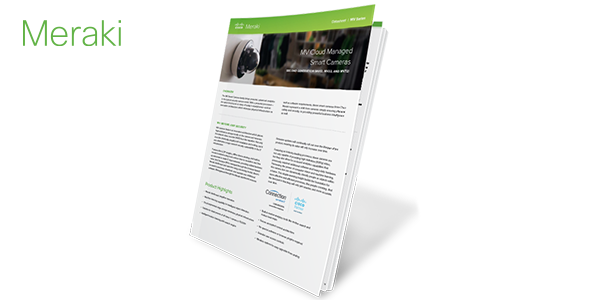
Meraki MV Solutions
Datasheet
Today’s manufacturers are looking for more than just security cameras. They are looking to evolve security, productivity, workplace safety, and quality. This means choosing a camera solution that just doesn’t record and store video, but a platform that is easy to deploy and use, integrates AI and MV at the edge of the camera, solves a complex range of use cases with simple out-of-the-box solutions, and offers expansion into complex use cases via third-party software partnerships.
Plainsight Vision AI
Solution
Today’s cameras provide on-board AI compute and the ability to stream video to an edge device, making them a great investment for solving issues in security, workplace safety, and production. Using third-party software atop these camera investments, manufacturers can deploy any number of use cases to drive productivity, compliance, quality, and safety. Learn more about how Plainsight’s unique artificial intelligence and machine vision platform allows teams to develop new vision models, easily manage the machine vision lifecycle, and solve modern manufacturing challenges.
AI in Manufacturing
White Paper
Artificial intelligence (AI) is transforming global manufacturing. It promises substantial business benefits for manufacturers: increased throughput, reduced costs, and improved product quality. While AI represents maturity in what Industry 4.0 seeks to achieve, your organization’s first steps into implementing AI don’t need to feel overwhelming. Instead of trying to solve everything at once, you can—and should—use AI incrementally to solve the right problems at the right time for your business. Read this white paper for a better understanding of manufacturing best practices for AI.Machine Vision Is Easier Than You Think
Video
Just look at how fast the Connection Manufacturing Team was able to quickly build a bottling line—complete with cameras, high-performance compute, networking, enclosures, sensors, PLCs, digital signage—and train an artificial intelligence machine vision model (in days) to detect a range of quality defects in real-time at the edge.AI/Camera Vision is not a dream, it’s a reality. You too can leverage it to take unstructured data from cameras and convert it to valuable insight to address workforce shortages, skills gaps, safety, quality, and productivity or to create market differentiation that sets you apart.
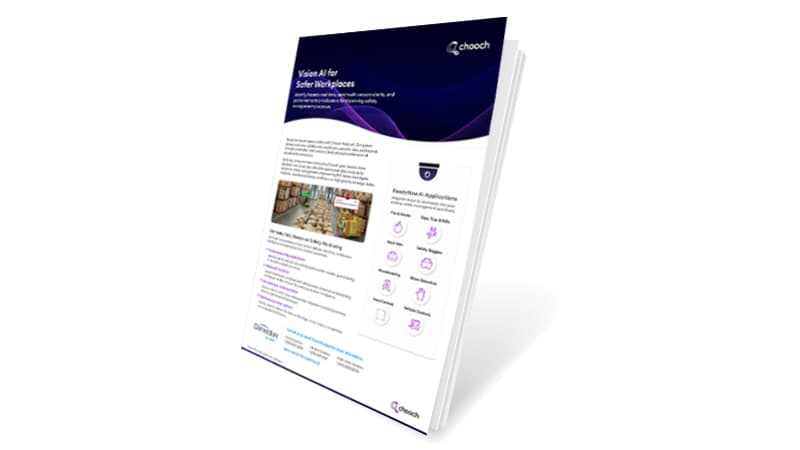
Vision AI for Safer Workplaces
Solution
Revolutionize workplace safety with Chooch Vision AI. The Chooch platform delivers real-time visibility into unsafe acts, security risks, and hazards through automated multi-sensory alerts and comprehensive risk assessment dashboards.Top Customer Challenges

Manufacturing IT Trends for 2024: Embracing Innovation, Data-driven Insights, and Workforce Augmentation
At Connection, we understand that manufacturers are at different points in their smart manufacturing journey. Our Manufacturing Practice regularly works with manufacturing organizations to help them grow and improve their business through the application of domain experience and enabling technologies. As technology continues to evolve and market demands shift, manufacturers that embrace innovation, harness the power of data, and empower their workforce will continue to evolve on the smart manufacturing journey, become more competitive, and create market differentiation in their subindustries.
Read our blog post to discover how five key trends are going to transform the future of manufacturing in 2024.
Connection Community
Edge Evolution Powers the Modern Factory
Edge computing has come a long way since the days of content delivery networks. Originally, it was used to cache... Read More
Modernizing Manufacturing Communication: The...
The world of manufacturing is evolving fast. From connected machines to mobile field service, the expectation for seamless, secure, and... Read More
Reimagining Manufacturing IT: Building a...
Manufacturing is at a pivotal moment. Industry 4.0 has evolved from buzzword to baseline, and leaders are now tasked with... Read More
The Perfect Model of the World Is Here
For my senior design project in engineering school, we were asked to look at a new factory for a large... Read More
AI in Supply Chains: What Works, What’s...
Michael, a supply chain manager at a growing logistics firm, was staring down a nightmare. Warehouses were overflowing with the... Read More
- IBM, 2022, X-Force Threat Intelligence Index 2022
- Deloitte, 2020, Accelerating Smart Manufacturing
- Microsoft, 2020, IoT Signals Report





